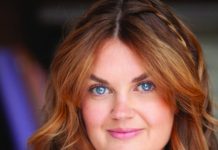By Rita Robinson | LB Indy
The easy part was scrambling for two years to buy a deserted retirement home at Ruby Street and S. Coast Highway. The hard part now is making the rent.
The property and building with views overlooking the Pacific Ocean were purchased for $6.5 million as the future site of the Glennwood House, a group home for 50 developmentally disabled young adults.
The sale was secured with $1.6 million as a partial payment towards the 50 percent down. But when the rest of the down payment, or $1.9 million, couldn’t be met, the property owner, who lives in Arcadia but requests anonymity, didn’t let the escrow fall through.
Even though there were other interested parties, the seller made it possible for the Glennwood House Foundation to buy the property. He offered the foundation a second mortgage on the property and escrow closed in October.
“It’s been rough all year trying to raise money,” said Danielle Wilson, a real estate agent working with the foundation for two years who decided to stay on as a volunteer to help coordinate efforts. “The difficulty was the foundation didn’t own the property.”
But two mortgages made for a hefty $37,000 monthly payment.
Now with the property deed in hand, the foundation will only need to pay that bill until next October when an anonymous Laguna Beach angel donor will retire the second mortgage from proceeds procured from selling a business, according to Randy Larson, the founding chairman of Glennwood House.
In the meantime, fundraising efforts are ramping up to not only cover mortgage payments, which will total about $400,000 over the next 10 months, but also to renovate the 17,000-square-foot facility. Plans are to open the doors to residents at least 18 years old by spring 2012; rental income is expected to keep the operation in the black.
”If we were to get a slew of major gifts that will happen sooner,” said Michelle Whiting, a 28-year nonprofit consultant hired by Glennwood House to raise money to whittle down its mortgages and underwrite remodeling costs. Whiting’s most recent capital campaigning was for the Kresge Foundation, which she plans to approach on behalf of Glennwood House.
“Typically, foundations don’t want to be the first at the dance,” explained Whiting, adding that Kresge, for instance, prefers to support “brick and mortar” projects rather than wish lists. “We can start approaching some of the foundations for six-figure gifts.” Improvements are projected at $500,000 for bare-bones upgrades to $1 million for top-of-the-line amenities.
Whiting met with a core group of volunteers at the Glennwood House this past Tuesday to lay out a fundraising strategy and start getting builders on board. She’s teaching her apprentices how to convey key messages about the unique qualities of Glennwood House, find capable prospects, make “the ask,” and follow up to ensure the donation.
“There’s an art to asking for money, especially in this day and age,” said Wilson. “You have to do it the right way.”
As to the unique character of the Glenwood House project, Whiting says it’s a first. “I have done about 20 campaigns in my career,” she said, “and I honestly don’t think I have ever seen such a small grassroots group of people make so much happen. These people are like the little engine that could.”
Todd Hanson of the Orange County Community Foundation, a clearinghouse for donations to a variety of causes, said Glennwood House is already impressing local benefactors. “There is nothing like it that I’ve seen,” he said, citing his nine years of experience vetting projects for donors. Other housing options for special needs adults don’t offer as much for the money, he said.
The foundation has already contributed to the Glennwood House with a $100,000 gift and a $500,000 deferred-payment loan, both from an anonymous Laguna Beach couple who each have an older brother with Down’s syndrome. OCCF also made a $7,500 grant from its own discretionary funds last week.
Monthly rent at the Glennwood House will run $2,500, which covers assisted care, room and board, and programs designed to groom residents for independence. Job placement, life skills, volunteer work and social and physical activities are all part of the plan.
Larson said special needs children have watched their brothers and sisters grow up, leave for college and live independently. His 27-year-old son Trevor, who has Down’s syndrome, is impatiently waiting to move to Ruby Street. “These kids love music, love hanging out together, love watching sports,” Larson said. “They’re trying to be like regular kids out there with just a couple of other issues they have to deal with.”




